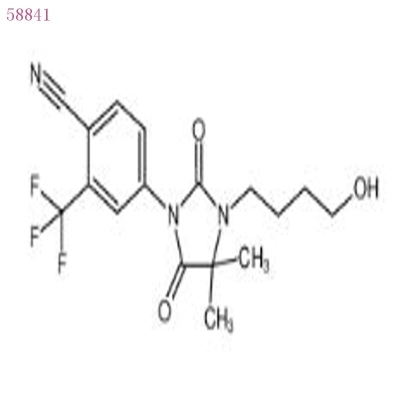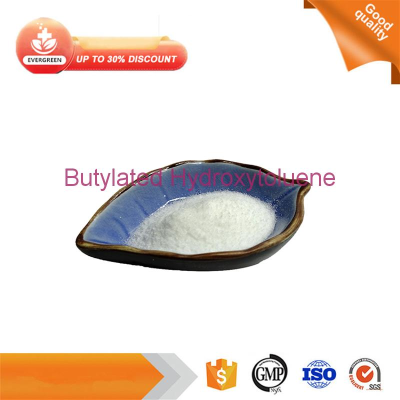-
Categories
-
Pharmaceutical Intermediates
-
Active Pharmaceutical Ingredients
-
Food Additives
- Industrial Coatings
- Agrochemicals
- Dyes and Pigments
- Surfactant
- Flavors and Fragrances
- Chemical Reagents
- Catalyst and Auxiliary
- Natural Products
- Inorganic Chemistry
-
Organic Chemistry
-
Biochemical Engineering
- Analytical Chemistry
- Cosmetic Ingredient
-
Pharmaceutical Intermediates
Promotion
ECHEMI Mall
Wholesale
Weekly Price
Exhibition
News
-
Trade Service
Editor in charge: Food Science
Food professionals face to face
Food science is the scientific foundation and technical support of the food industry.
Introduction to Qingdao Agricultural University
Qingdao Agricultural University was founded in 1951.
In the long-term school-running practice, the school has forged the school motto of "Honesty, erudition, dedication, and far-reaching" and the school spirit of "diligence, rigor, truth-seeking, and innovation", forming a "commitment to agriculture, rural areas and farmers, diligence and truthfulness, self-improvement, and pursuit of excellence".
The school insists on cultivating high-quality professionals with noble value pursuit, persistent professionalism, rigorous and solid >
The school is committed to building a high-level faculty with noble ethics, professional skills, reasonable structure and full of vitality
Introduction to the School of Food Science and Engineering
The Department of Food Science and Engineering was established in the 1980s.
The college now has five undergraduate majors in food science and engineering, food quality and safety, bioengineering, food engineering, grape and wine engineering, of which the food science and engineering major is a national characteristic major, and the "Double Ten Thousand Plan" is a national first-class undergraduate major Construction site, passed the on-site inspection of the Ministry of Education's Engineering Education Professional Certification in May 2021
The college currently has 86 faculty members, including 77 full-time teachers (including 7 experimental teachers), 4 doctoral supervisors, 35 master supervisors; 14 professors, 51 associate professors, 62 doctors, and 15 masters; enjoy 2 special allowances from the State Council, 1 post scientist in the national modern agricultural industrial technology system, 1 senior expert contacted by the central government, 1 distinguished expert from Taishan Scholars, 3 post-scientists in the modern agricultural industrial technology system of Shandong Province, and young people with outstanding contributions in Shandong Province 3 experts, 1 national outstanding teacher, 1 famous teaching teacher in Shandong Province; 1 outstanding graduate student instructor in Shandong Province, 1 talented talent in the China Association for Science and Technology Youth Enrollment Project; the proportion of full-time teachers with doctoral degrees is 90 % And 43% are teachers with overseas study experience
The college has the National Corn Processing Technology Research and Development Center, the Shandong Food Quality Safety Control Engineering Technology Research Center, the National Peanut Processing Technology Research and Development Professional Sub-center, the Shandong Meat Food Quality Control Engineering Technology Research Center, and the Shandong Province New and Old Kinetic Energy Conversion Industry Public Practice Training Base, Shandong Province Food Engineering Technology Training Center, Shandong Province Colleges and Universities Key Subject Teaching Experimental Center, Shandong Province Sino-Korea Food Biotechnology Research Center, Qingdao Agricultural Products Processing and Quality Safety Engineering Research Center, Qingdao Food Quality Safety Risk Assessment The engineering research center and many other provincial (ministerial) and municipal-level teaching, scientific research and innovation practice platforms, with a total value of more than 45 million yuan in instruments and equipment, meet the needs of scientific research and teaching
In recent years, the college has published 322 SCI papers in high-level journals, including 12 highly cited papers; it has undertaken more than 110 national key research and development projects, with a total funding of over 100 million yuan; won the Shandong Province as the first completion unit 8 provincial and ministerial awards such as the Science and Technology Progress Award and the Shandong Technology Invention Award; 72 authorized invention patents, more than 12 million yuan in funds for the transfer of scientific research results; 3 provincial first-class courses, and 1 first prize of the Shandong Provincial Teaching Achievement Award , 4 second prizes, 1 provincial postgraduate education and teaching achievement third prize, undertook 8 provincial teaching research topics, edited or participated in planning textbooks, etc.
The college conducts research on intensive food processing to help implement the national strategy
01 Introduction to Food Science and Engineering
The Food Science and Engineering Department of Qingdao Agricultural University was established in 1993, and undergraduates were enrolled in 1994.
Training objectives
This major cultivates the all-round development of morality, intelligence, physical education, art and labor, has a high sense of responsibility to the country and society, has good humanities and physical qualities, has the unity of knowledge and practice, and is committed to the socialist cause and reliable successors; Cultivate the ability to understand the development trends and problems of the food industry, master the basic knowledge, basic theories and basic skills of food science and engineering, and have the sense of innovation and practical ability; be able to engage in food in related fields such as food production, processing, storage, circulation, and supervision Applied senior engineering and technical personnel in production and management, product development, quality control, engineering design, scientific research, education and teaching
Main course
Biochemistry, food chemistry, food microbiology, food engineering principles, food nutrition, food machinery and equipment, food factory design, food technology (including grain and oil food technology, fruit and vegetable processing, meat technology, dairy technology, etc.
Employment and further study
This major focuses on cultivating students' advanced engineering technology and scientific research capabilities.
02Introduction to Food Quality and Safety Specialty
Ministry of Education "Double Ten Thousand Plan" national first-class professional construction site, Shandong Province characteristic professional construction site, Shandong Province characteristic school construction project key construction major, Shandong Province high-level application-oriented key project construction major (group) major, Shandong Province Education Service The new and old kinetic energy conversion major is to connect the industry project major
.
Training objectives
Cultivate the comprehensive development of morality, intelligence, physical education, art and labor, have a high sense of responsibility to the country and society, understand the development trends and problems of the food quality and safety industry or field, master the basic knowledge, basic theories and basic skills in the field of food quality and safety, and have a sense of innovation and Qualified builders and reliable successors of the socialist cause with practical ability, good humanities and science literacy, good physical fitness and the unity of knowledge and practice, and the spirit of agriculture, rural areas and farmers, who are able to conduct food processing, distribution, import and export, sanitation supervision, and food quality supervision Application-oriented senior engineering and technical personnel engaged in food inspection, food quality control and quality management, scientific research, standard and regulatory development, education and teaching, etc.
, from administrative departments, universities and related scientific research institutions
.
Main course
Biochemistry, food chemistry, food microbiology, food nutrition, food analysis, food safety, food toxicology, food safety testing technology, food engineering principles, food laws and standards, food quality management
.
Employment and further study
In the past five years, the professional employment rate has been above 95%, and more than 40% of the graduates went abroad for further studies or domestic postgraduate studies
.
Graduates' employment destinations are mainly food and drug administrative supervision departments, entry-exit inspection and quarantine, Chinese customs, food-related enterprises, scientific research institutes, etc.
, capable of import and export inspection and quarantine, market supervision and management, food analysis and testing, quality control, products Development, scientific research and other aspects of work
.
This article is an English version of an article which is originally in the Chinese language on echemi.com and is provided for information purposes only.
This website makes no representation or warranty of any kind, either expressed or implied, as to the accuracy, completeness ownership or reliability of
the article or any translations thereof. If you have any concerns or complaints relating to the article, please send an email, providing a detailed
description of the concern or complaint, to service@echemi.com. A staff member will contact you within 5 working days. Once verified, infringing content
will be removed immediately.







